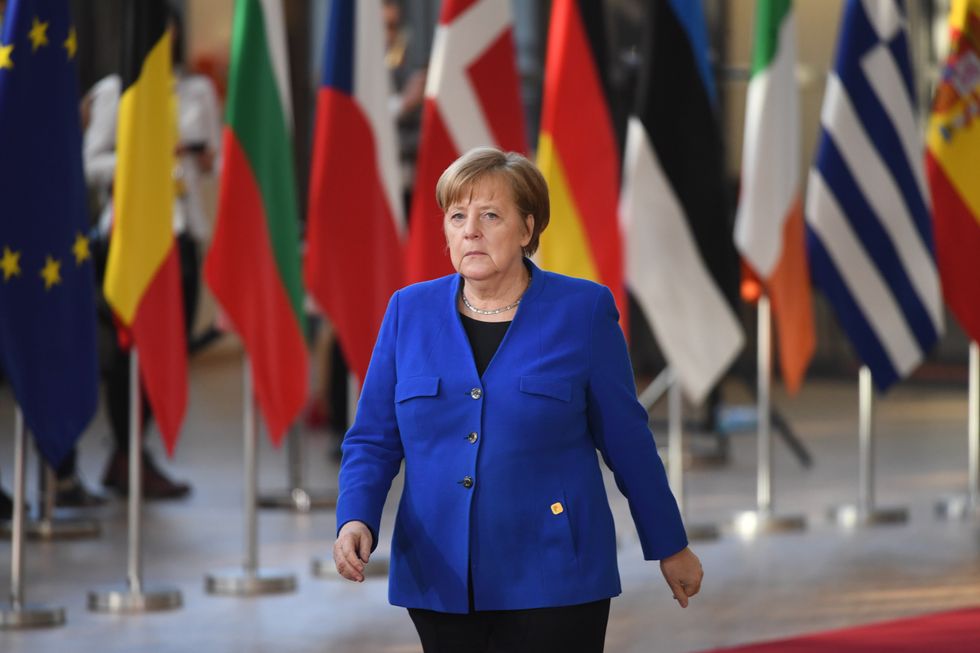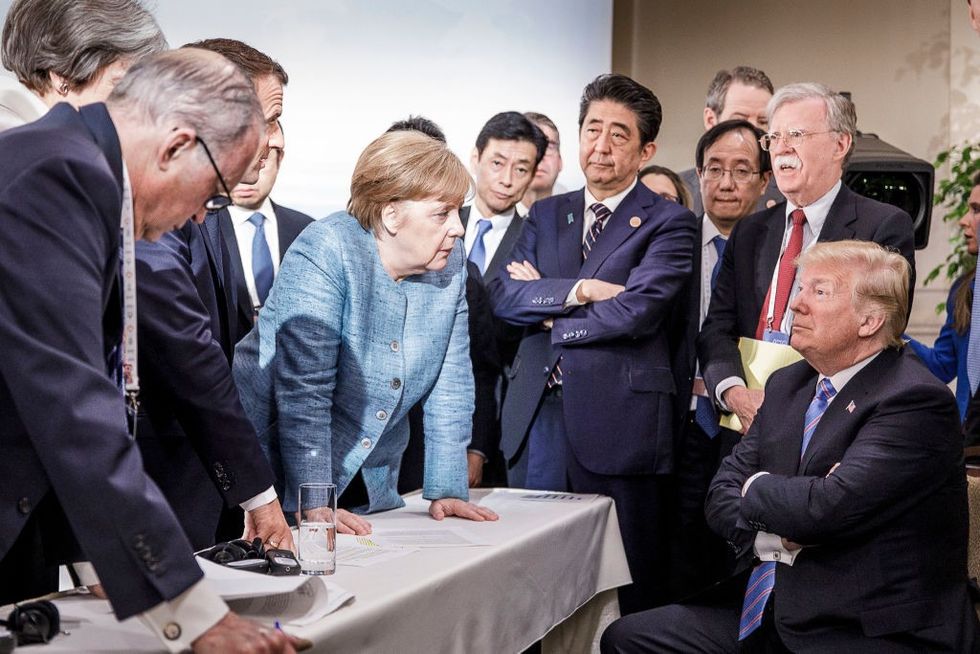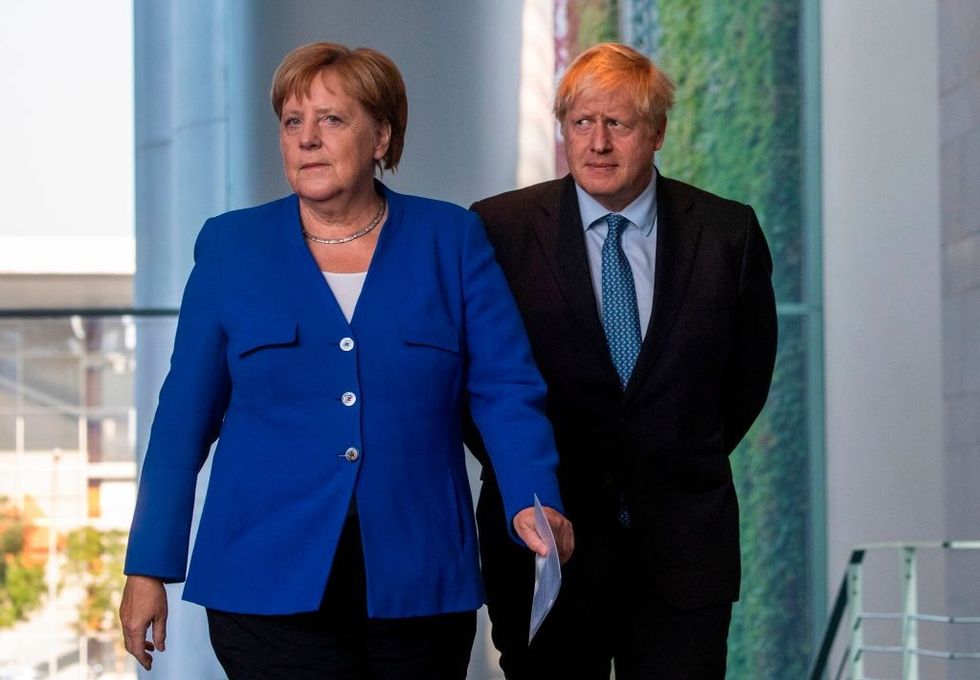George Bunn
Guest Reporter
Former German Chancellor Angela Merkel has revealed that Brexit felt like a "humiliation" and "disgrace" for the European Union, leaving the bloc weakened on the world stage.
In her upcoming memoir "Freedom", due to be published on Tuesday, Merkel describes her dismay at Britain's decision to leave the EU.
"To me, the result felt like a humiliation, a disgrace for us, the other members of the European Union – the United Kingdom was leaving us in the lurch," she writes.
The former Chancellor, who left office in 2021 after 16 years in power, states that Britain's departure fundamentally altered how the EU was perceived globally.

"This changed the European Union in the view of the world; we were weakened," she admits.
Merkel reveals she went to great lengths to support then-Prime Minister David Cameron in his efforts to keep Britain in the EU.
"I tried wherever possible to help David Cameron," she writes, even standing by his side throughout a crucial EU summit in February 2016. Her support for Cameron came at a personal cost, making her an "outsider" with other EU leaders.
"During the summit, I steadfastly remained by David Cameron's side for an entire evening. In this way I was able to prevent his complete isolation in the council," she explains.
LATEST DEVELOPMENTS

She helped Cameron negotiate the EU's financial perspective for 2014 to 2020, though this put her at odds with recipient countries who faced reduced economic development funds. Merkel traces Brexit's origins back to 2005, when Cameron promised to withdraw Conservative MEPs from the European People's party due to its pro-EU stance.
She points to Cameron's 2013 pledge to hold an EU membership referendum if re-elected as prime minister, writing that "he himself was in favour of remaining, but he was attempting to gain the votes of the sceptics."
The former Chancellor identifies Boris Johnson's role as pivotal in the referendum outcome, saying: "Boris Johnson, one of his most influential competitors in the power struggle for leadership of the Conservative Party, decided, against Cameron's hope, to support the UK's exit from the EU in the 2016 referendum campaign.
"This gave the EU opponents' campaign the decisive boost. They prevailed."

In her memoir, Merkel reveals she was "tormented" by whether she could have made more concessions to keep Britain in the EU.
"After the referendum, I was tormented by whether I should have made even more concessions towards the UK to make it possible for them to remain in the community," she writes.
However, she ultimately concluded that Britain's departure was inevitable given the political climate.
"I came to the conclusion that, in the face of the political developments taking place at the time within the country, there wouldn't have been any reasonable way of preventing the UK's path out of the EU as an outsider."
She expresses hope that both sides can maintain "mutual appreciation" and find ways to achieve "harmonious agreement" on important matters.
Find Out More...
In her upcoming memoir "Freedom", due to be published on Tuesday, Merkel describes her dismay at Britain's decision to leave the EU.
"To me, the result felt like a humiliation, a disgrace for us, the other members of the European Union – the United Kingdom was leaving us in the lurch," she writes.
The former Chancellor, who left office in 2021 after 16 years in power, states that Britain's departure fundamentally altered how the EU was perceived globally.

"This changed the European Union in the view of the world; we were weakened," she admits.
Merkel reveals she went to great lengths to support then-Prime Minister David Cameron in his efforts to keep Britain in the EU.
"I tried wherever possible to help David Cameron," she writes, even standing by his side throughout a crucial EU summit in February 2016. Her support for Cameron came at a personal cost, making her an "outsider" with other EU leaders.
"During the summit, I steadfastly remained by David Cameron's side for an entire evening. In this way I was able to prevent his complete isolation in the council," she explains.
LATEST DEVELOPMENTS
- Backing Brexit 'not protected' from workplace discrimination after woman loses bullying and harassment case
- Daubney shuts down guest over ‘ridiculous’ ploy that could see thousands head to Britain
- Reeves blames Brexit for economic woes ahead of EU 'reset' as Chancellor hints at 'deeper US ties' after Trump win

She helped Cameron negotiate the EU's financial perspective for 2014 to 2020, though this put her at odds with recipient countries who faced reduced economic development funds. Merkel traces Brexit's origins back to 2005, when Cameron promised to withdraw Conservative MEPs from the European People's party due to its pro-EU stance.
She points to Cameron's 2013 pledge to hold an EU membership referendum if re-elected as prime minister, writing that "he himself was in favour of remaining, but he was attempting to gain the votes of the sceptics."
The former Chancellor identifies Boris Johnson's role as pivotal in the referendum outcome, saying: "Boris Johnson, one of his most influential competitors in the power struggle for leadership of the Conservative Party, decided, against Cameron's hope, to support the UK's exit from the EU in the 2016 referendum campaign.
"This gave the EU opponents' campaign the decisive boost. They prevailed."

In her memoir, Merkel reveals she was "tormented" by whether she could have made more concessions to keep Britain in the EU.
"After the referendum, I was tormented by whether I should have made even more concessions towards the UK to make it possible for them to remain in the community," she writes.
However, she ultimately concluded that Britain's departure was inevitable given the political climate.
"I came to the conclusion that, in the face of the political developments taking place at the time within the country, there wouldn't have been any reasonable way of preventing the UK's path out of the EU as an outsider."
She expresses hope that both sides can maintain "mutual appreciation" and find ways to achieve "harmonious agreement" on important matters.
Find Out More...
